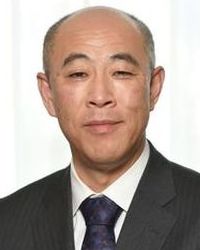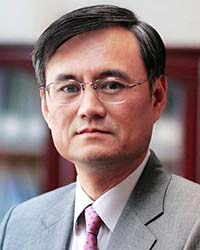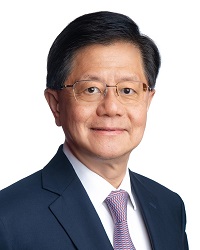Webinar Series
Zombies, Again? The COVID-19 Business Support Programs in Japan
2021
Session Chair: Bernard YEUNG
Stephen Riady Distinguished Professor in Finance and Strategic Management, National University of Singapore and President, ABFER
Takeo HOSHI, Dean and Professor, Graduate School of Economics, The University of Tokyo, Exco Member and Senior Fellow, ABFER
Co-authors:
Daiji KAWAGUCHI, Professor, Graduate School of Public Policy, The University of Tokyo
Kenichi UEDA, Professor, Graduate School of Economics and Graduate School of Public Policy, The University of Tokyo
Yingyi QIAN, Professor, Department of Economics and Distinguished Professor of Arts, Humanities and Social Sciences, Tsinghua University and Senior Fellow, ABFER
Speakers
-

Takeo HOSHI
Dean and Professor, Graduate School of Economics, University of Tokyo and Senior Fellow, ABFER
Takeo Hoshi is Dean of the Graduate School of Economics and Professor at the University of Tokyo. His research area includes corporate finance, banking, monetary policy and the Japanese economy. Hoshi is also Co-Chairman of the Academic Board of the Center for Industrial Development and Environmental Governance (Tsinghua University). His past positions include Henri and Tomoye Takahashi Senior Fellow at the Freeman Spogli Institute for International Studies at Stanford University and Pacific Economic Cooperation Professor in International Economic Relations at University of California, San Diego. He received the 2015 Japanese Bankers Academic Research Promotion Foundation Award, the 2011 Reischauer International Education Award of Japan Society of San Diego and Tijuana, the 2006 Enjoji Jiro Memorial Prize of Nihon Keizai Shimbun, and the 2005 Japan Economic Association-Nakahara Prize. His book Corporate Financing and Governance in Japan: The Road to the Future (MIT Press, 2001) co-authored with Anil Kashyap received the Nikkei Award for the Best Economics Books. He co-authored The Japanese Economy (MIT Press, 2020) with Takatoshi Ito. His book on the political economy of the Abe administration co-edited with Phillip Lipscy is published from Cambridge University Press in 2021. Other publications include “Will the U.S. and Europe Avoid a Lost Decade? Lessons from Japan’s Post Crisis Experience” (Joint with Anil K Kashyap), IMF Economic Review, 2015; and “Zombie Lending and Depressed Restructuring in Japan” (Joint with Ricardo Caballero and Anil Kashyap), American Economic Review, December 2008. Hoshi received his B.A. from the University of Tokyo in 1983, and a Ph.D. in Economics from the Massachusetts Institute of Technology in 1988.
-

Yingyi QIAN
Professor, Department of Economics and Distinguished Professor of Arts, Humanities and Social Sciences, Tsinghua University and Senior Fellow, ABFER
Yingyi Qian Professor Qian was born in Beijing and graduated from Tsinghua University in Mathematics. He received his Ph.D. in Economics from Harvard University after earning an M.Phil. in Management Science/Operations Research from Yale University and an M.A. in Statistics from Columbia University.
He was on the economics faculties at Stanford University, the University of Maryland, and the University of California, Berkeley. He was the Dean of the School of Economics and Management at Tsinghua University in 2006-2018.
Professor Qian was elected as Fellow of the Econometric Society in 2012 and as inaugural Distinguished Professor of Arts, Humanities and Social Sciences at Tsinghua University in 2018. He was a recipient of the 2009 Sun Yefang Prize in Economic Sciences and the inaugural 2016 China Economics Prize. His main research areas include comparative economics, institutional economics, economics of transition and the Chinese economy.
He is the author of the book How Reform Worked in China: The Transition from Plan to Market (The MIT Press, 2017) and has published articles in international journals such as The American Economic Review, Journal of Political Economy, The Quarterly Journal of Economics, and The Review of Economic Studies. -

Bernard YEUNG
Stephen Riady Distinguished Professor in Finance and Strategic Management, National University of Singapore and President of ABFER
Bernard Yeung is Stephen Riady Distinguished Professor in Finance and Strategic Management at the National University of Singapore Business School. He is also the President of the Asian Bureau of Finance and Economic Research. He was Dean of NUS Business School from June 2008 to May 2019. Before joining NUS, he was the Abraham Krasnoff Professor in Global Business, Economics, and Management at New York University (NYU) Stern School of Business. He has also served as the Director of the NYU China House, the honorary co-chair of the Strategy Department of the Peking University Guanghua School of Management. From 1988 to 1999, he taught at the University of Michigan and at the University of Alberta from 1983 to 1988.
Professor Yeung has published widely in academic journals covering topics in Finance, Economics, and Strategy; his writing also appears in top-tier media publications such as The Financial Times, Economist, and The Wall Street Journal.
He won the Public Administration Silver Medal (2018) in Singapore, Irwin Outstanding Educator Award (2013) from the Academy of Management and is an elected Fellow of the Academy of International Business.
Professor Yeung was a member of the Economic Strategies Committee in Singapore (2009), a member of the Social Science Research Council (SSRC) in Singapore (2016-2018) and a member of the Financial Research Council of the Monetary Authority of Singapore (2010 -2013).
Professor Yeung sits on the 3rd Advisory Board of the Antai College of Economics and Management at Shanghai Jiao Tong University, the Advisory Council of the Economics and Management School of Wuhan University and the Advisory Committee of the Institute of Economics, Academia Sinica. Professor Yeung also serves as an independent Non-Executive Director of the Bank of China (BOC) Aviation Limited since 2016.
Professor Yeung received his Bachelor of Arts in Economics and Mathematics from the University of Western Ontario and his MBA and PhD degrees from the Graduate School of Business at the University of Chicago.
- 1
Session Format
Each session lasts for 1 hour 10 minutes (25 minutes for the author, 25 minutes for the discussant and 20 minutes for participants' Q&A). Sessions will be recorded and posted on ABFER's web, except in cases where speakers or discussants request us not to.

